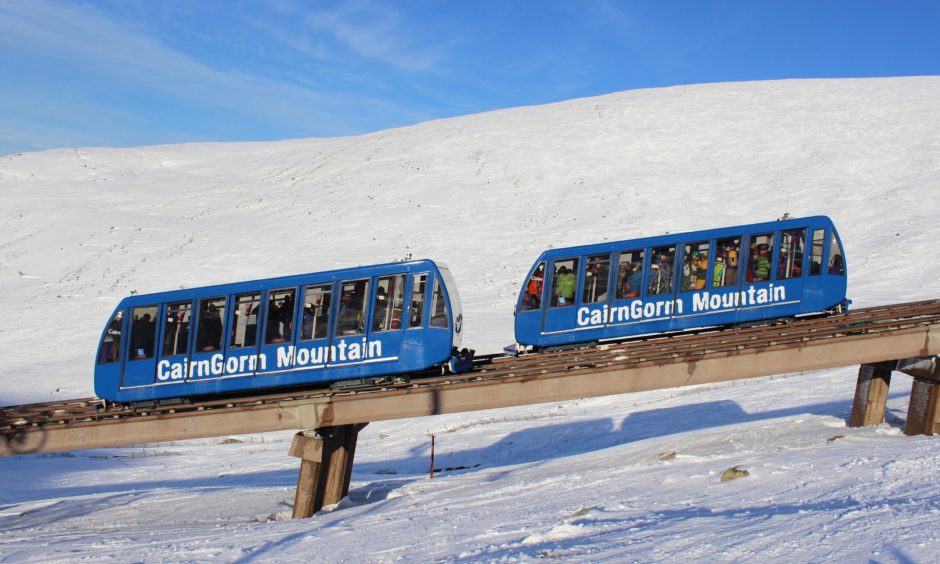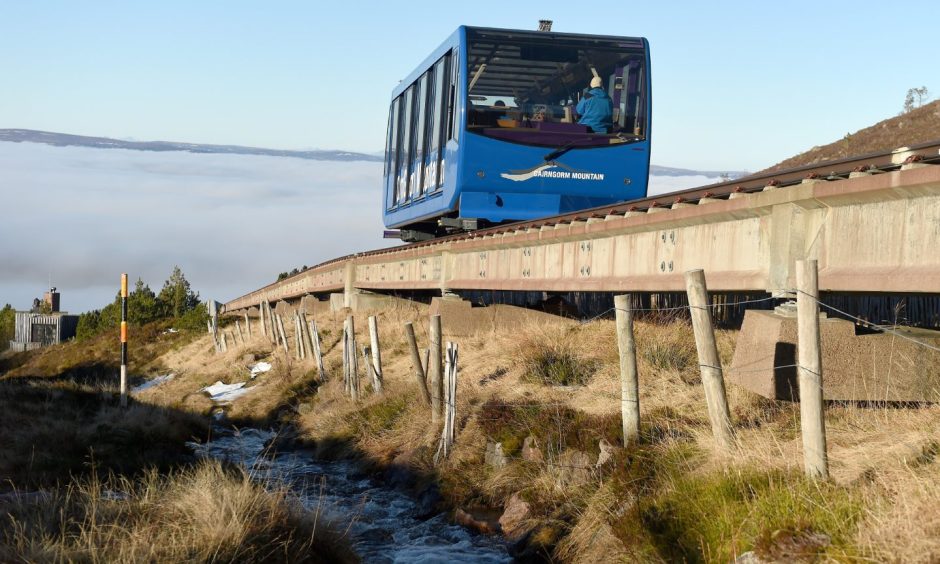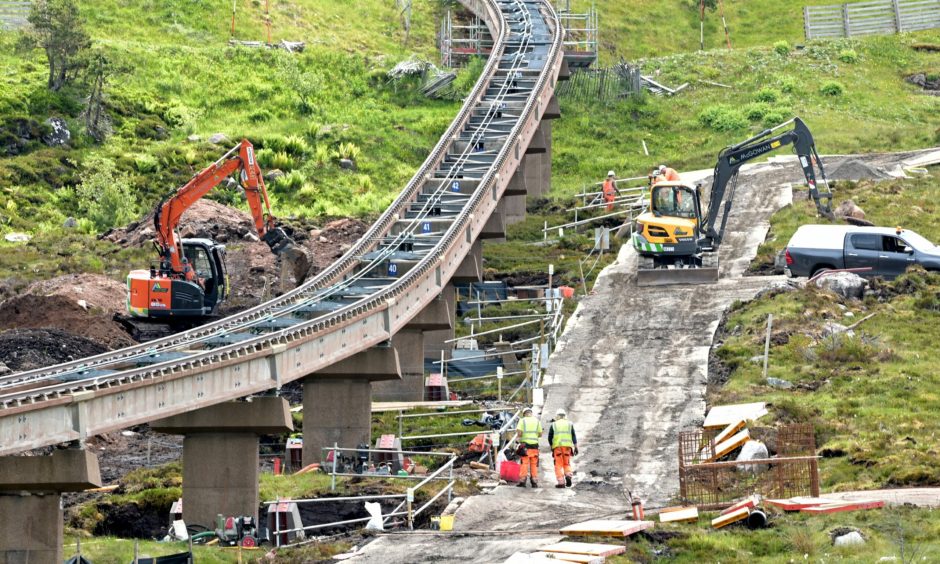A top Scottish engineer is warning repairs on the Cairngorm mountain railway will not last.
John Carson, 76, who was the boss of the company that built the Skye Bridge, believes it was a poor decision to build the funicular using precast concrete beams instead of steel.
“This is like putting lipstick on a pig,” he said.
“You’ve got a structure that is inherently flawed.”
The beleagured mountain railway was first shut in 2018 and only reopened in January 2023 after over-budget repairs which cost £25 million.
It was out of commission again just seven months later for further “snagging works” and is yet to reopen.
Highlands and Islands Enterprise (HIE), the agency responsible for the mountain, still aims to have the railway functioning for winter snow sports.
But Mr Carson, who has extensive experience designing and building concrete structures, was scathing about the project’s handling.
“The remedial works will add little to the badly built strength of the structure,” he said.
Mr Carson was a fellow of the Institution of Civil Engineers before he retired, the highest ranking membership.
He previously worked as the chief estimator for Balfour Beatty, the company trying to fix the funicular.
His concern is with the stainless steel brackets on the concrete beam which will expand and contract as it gets hotter and colder.
The top engineer claims some beams weathered badly and some are cracking, and said this could lead to them deflecting.
Mr Carson questions the span-to-depth ratio for the beams and believes the hostile mountain environment will prove a long-term problem.
“I see no way where a designer could calculate an acceptable factor of safety for the original structure or the remediated one,” he said.
Much of this comes back to the decision to use concrete.
It’s understood this was originally done as a cost-saving exercise.
“It is unimaginable why concrete was specifically used as cost-saving,” added Mr Carson.
HIE won £11 million last year after suing the companies who designed and built the funicular, which first opened in 2001.
Balfour Beatty carried out the first round of repairs and is incurring the cost of the ongoing works.
Mr Carson, employed by the constructors from 1975 to 1985, said they are one of Britain’s “pre-eminent contracting companies”.
He also described consultancy firm COWI UK, who investigated what needed fixed when the funicular first broke down, as “master designers” of Scandinavian bridges.
“I don’t know how we get to a situation where Balfour Beatty are doing something that looks very odd engineering wise, based on an equally odd requirement by COWI,” he said.
Mr Carson’s warnings leave major question marks for HIE and the use of large sums of public money.
Bosses of rival ski resorts have previously criticised how much money is funnelled into the struggling rail line.
We put Mr Carson’s claims directly to HIE.
A spokesperson said: “The remediation works at Cairngorm are progressing well and we’re looking forward to seeing the funicular back in action for the snowsports season.
“Safety has always been our top priority, as demonstrated by the immediate decision to withdraw the funicular from service in August 2023.
“Rigorous testing and safety checks will be carried out before passengers are welcomed on board.”
Read more about our Cairngorm rail reporting:





Conversation